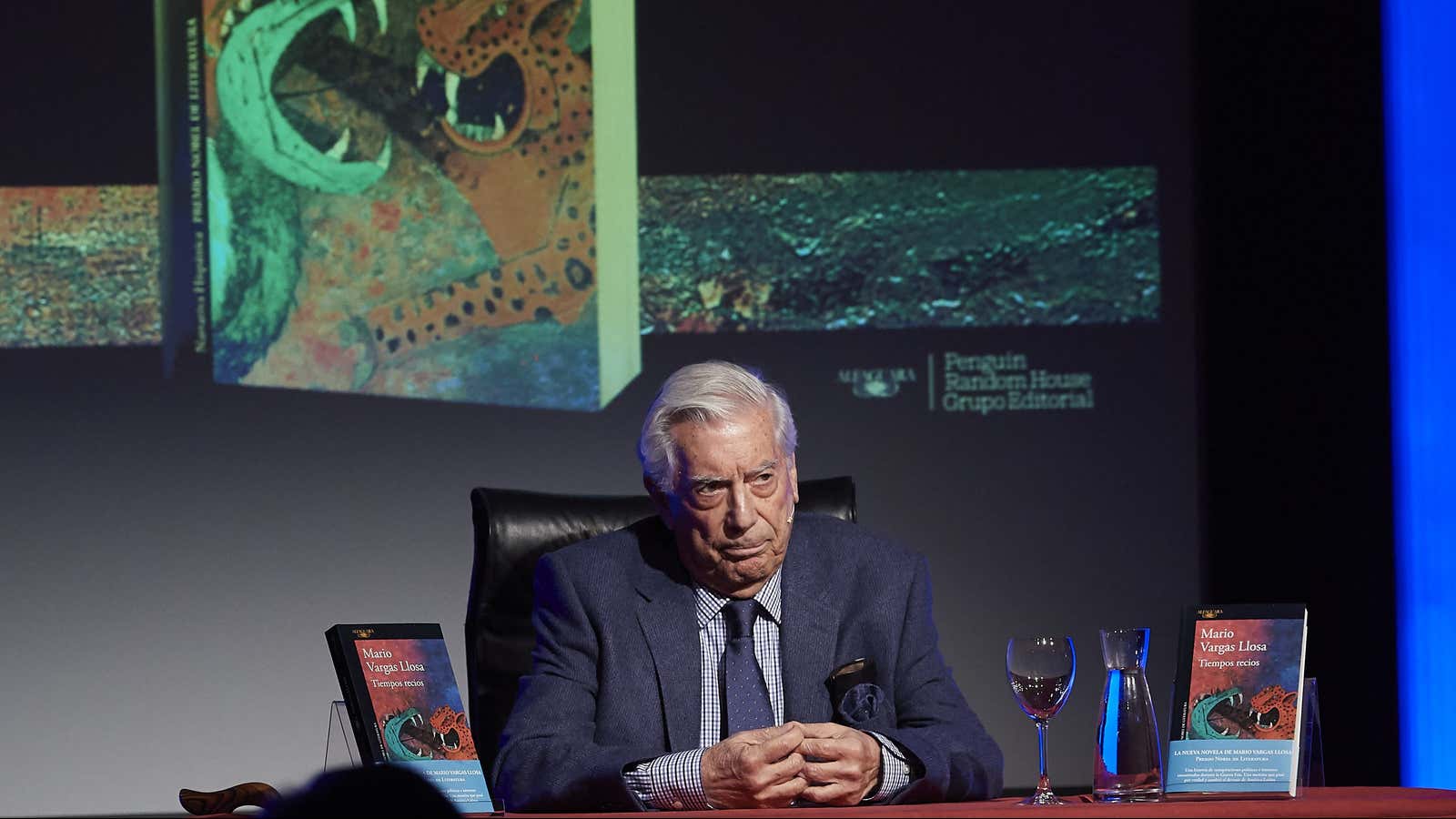In its ongoing campaign to spin the global narrative over the origins of the novel coronavirus, China is leaving no stone unturned. Its latest target: Peruvian author Mario Vargas Llosa.
The Chinese embassy in Lima published an announcement (link in Chinese) today blasting the Nobel laureate for his “irresponsible” comments he made with regards to China and the coronavirus outbreak. The statement, which can be found on the embassy’s account on chat app WeChat, was in reference to a column (link in Spanish) written by Vargas Llosa and published in Spanish newspaper El País yesterday.
In the column, 83-year-old Vargas Llosa stated that the virus had “originated in China,” and that because of the epidemic, society is showing signs of returning to the Middle Ages when people lived in fear of the plague. This would not be happening, Vargas Llosa wrote, were it not for China’s undemocratic political system, highlighting the fact that doctors who tried to blow the whistle at the start of the outbreak were silenced, and time that could have been used to develop a vaccine was thereby lost. He said such actions were the hallmark of dictatorships, and compared the sequence of events in China to that of the Chernobyl disaster (a comparison that many in China began making in the early days of the epidemic).
In recent weeks, as the epidemic worsened globally and the number of reported cases in China has stabilized, the Chinese government has sought to re-frame the established narrative that the coronavirus had originated in the city of Wuhan, where the first cluster of patients was infected at a seafood market. Those efforts reached a fever pitch last week when Zhao Lijian, a spokesman for the foreign ministry with over 360,000 followers on Twitter, tweeted a conspiracy theory that the US military may have been responsible for bringing the virus to China.
In a subsequent briefing with journalists, another foreign ministry spokesman said he would not comment on Zhao’s tweets, but said that the “international community” has different opinions as to the origins of the virus, which he added was a “scientific matter.” China has also hit out at US politicians, such as secretary of state Mike Pompeo, for using the term “Wuhan virus,” a term that has also drawn criticism inside the US for being racist.
The Chinese embassy in Lima said that Vargas Llosa’s comments on the origins of the virus were “stigmatizing,” citing guidance from the World Health Organization against linking a place to a disease in naming it, and said it was unreasonable and unconstructive to criticize other countries’ political systems at a time when everyone should be “united in responding” to the epidemic.
At a time when many Western democracies appear to be mishandling their responses to the epidemic, China is also highlighting its willingness to step in to provide aid and expertise, particularly to Italy, underscoring Europe’s internal divisions. Those efforts come alongside an increasingly clear propaganda push arguing that China’s aggressive measures to contain the outbreak were successful and managed to buy the world time. In its statement, the Chinese embassy asked whether Vargas Llosa “had contributed to the fight against the epidemic in Europe and Peru,” and suggested that as a public figure, if he wasn’t able to help, he should refrain from spreading “irresponsible and prejudiced speech.”
Vargas Llosa has long been politically outspoken and active, and even unsuccessfully ran for president in Peru in 1990 on a center-right platform. In his youth, he was a supporter of leftist Latin American causes such as the Cuban revolution, but later grew disillusioned (paywall) with socialism. The Swedish Nobel academy awarded the literature prize to him in 2010 because of “his cartography of structures of power and his trenchant images of the individual’s resistance, revolt and defeat.”
